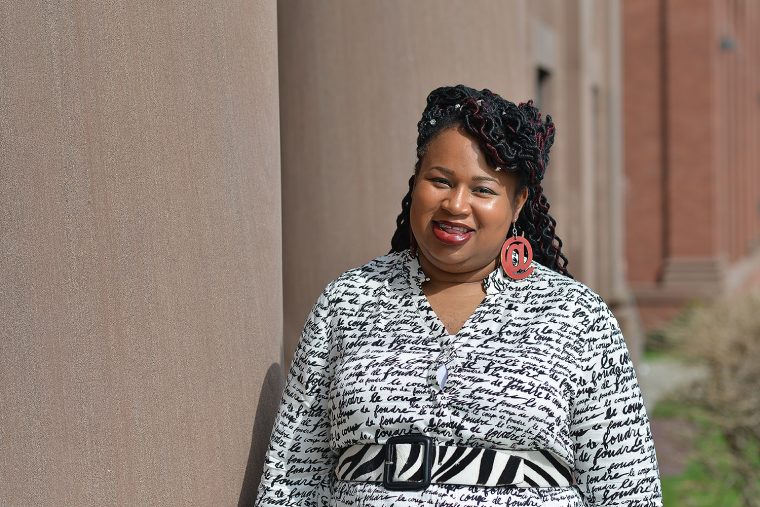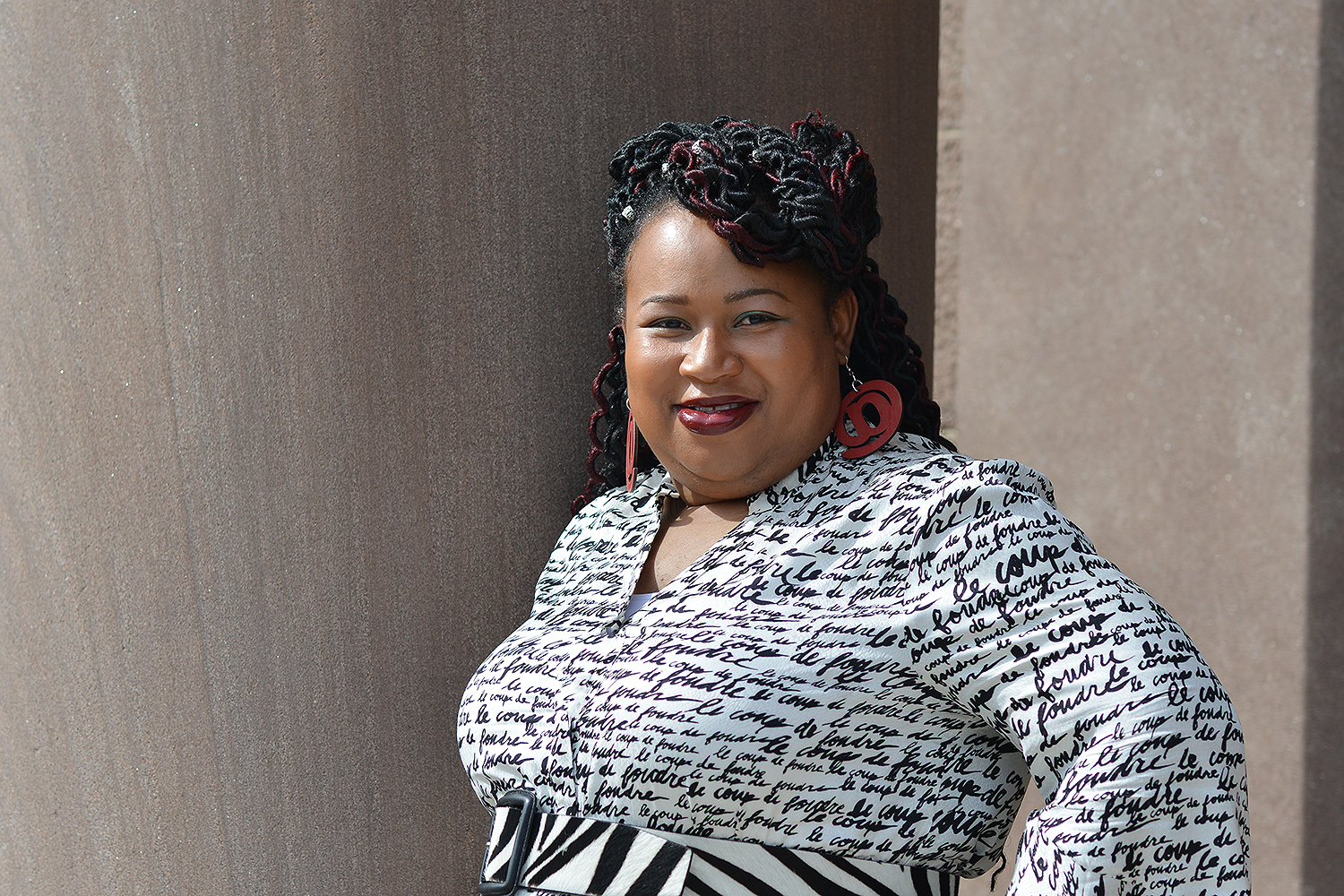Levy-Grant ’00 Helps Reduce Barriers for Students with Marginalized Identities


In this Q&A, we speak with Teshia Levy-Grant, a 2000 Wesleyan alumna and the dean for equity and inclusion.
Q: Teshia, when did you come to Wesleyan and what were hired as?
A: I arrived at Wesleyan about three years ago. I initially started as the director for Upward Bound Math and Science and Pre-College Access programs.
Q: You’re a 2000 alumna. What made you want to return to Wesleyan for your career?
A: I credit Wesleyan for my interest in social justice. It was while I was here as a student that I learned to value and appreciate difference. Prior to coming to Wesleyan, I grew up in a fairly homogenous community. At Wesleyan, my beliefs and thoughts were challenged and these experiences shaped the course of my life. As a first-generation college student with little insight into what a future could look like, I stuck to what I was told I should be and that was a doctor. I struggled through Science courses, which should have been an indication that it wasn’t a right fit, but it was all I knew.
I was finally able to find my passion after accepting the reality that science was not for me. It was Jim Donady (professor of biology, emeritus) who will always hold a very special place in my life, that helped me to negotiate the experiences and challenges I was having. He was not just my advisor, professor, but he has helped me so much even post my Wesleyan years. He believed in me and when I had moments of doubt at Wesleyan and even after graduating not knowing what direction to take, we would talk and he would help me to figure it out. Over time and with some guidance, I found my way to higher education. However, I yearned to be on a campus that valued social justice where it was not just part of the rhetoric but conversations were happening and people are actively working towards causes they believe in and trying to make the institution more inclusive and equitable. I think that is why this is the place I want to be.
Q: What cohort programs does the Office for Equity and Inclusion oversee?
A: The Office for Equity and Inclusion coordinates five Wesleyan cohort programs: the Mellon Mays Undergraduate Fellowship, the Ronald E. McNair Postbaccalaureate Achievement Program, the Wesleyan Math and Science Scholars Program (WesMaSS), the Upward Bound Math-Science Program, and the Posse Veteran Scholars Program. Together, these five communities make up the Pathways to Inclusive Excellence. In addition to that, we work with students and groups who are from traditionally marginalized identity/ies.
Q: As dean for equity and inclusion, what is a typical day for you like?
A: The beauty of this work is that there is no typical day. The needs of the campus changes and so does my work. However, I spend a lot of time meeting and collaborating with various offices as well as meeting with students and planning events for students. Also, I try to be visible on campus by attending students’ programs, performances and events.
Q: What are concerns students have when they visit your office?
A: Students have multiple concerns, especially on how to negotiate this campus. Generally, I would sum up most of the concerns under two categories:
1. Access — how to access resources, ways to make them more visible and how to reduce barriers for students with marginalized identities.
2. Support — ways in which the administration can support or should support marginalized students and how to take social identities into account in addressing these issues.
Q: You previously were the program director for the Wesleyan Upward Bound Math-Science Program, which serves low-income, first generation and under-represented high school students. How were you able to relate to these students?
A: I related so well to the students because I too was low-income, first generation and underrepresented in the field of science that I wanted to pursue. In so many ways that job was my life coming full circle. I saw myself in the students as their struggles in so many ways personified my own experiences. I felt that that job allowed me to be my authentic self as I was able to speak from a place of truth and empathy.
Q: Where do you reside and what are your interests outside the office?
A: I live in Bloomfield, Conn. Outside of work, I am actively involved in my church in Hartford, I also serve as the youth director. Ensuring that students have access to resources is something that I am passionate about. I work extensively with kids from Hartford from underserved schools to fill gaps in their learning as well as provide them with skills to help them be “college ready.” I also work with a scholarship program to provide funding for students. I am the “go to” person in my community for questions and help by navigating the entire process from admissions to retention and persistence in college. I also like to make jewelry and I love fashion, so I would have to say shopping, especially for Afrocentric jewelry.

